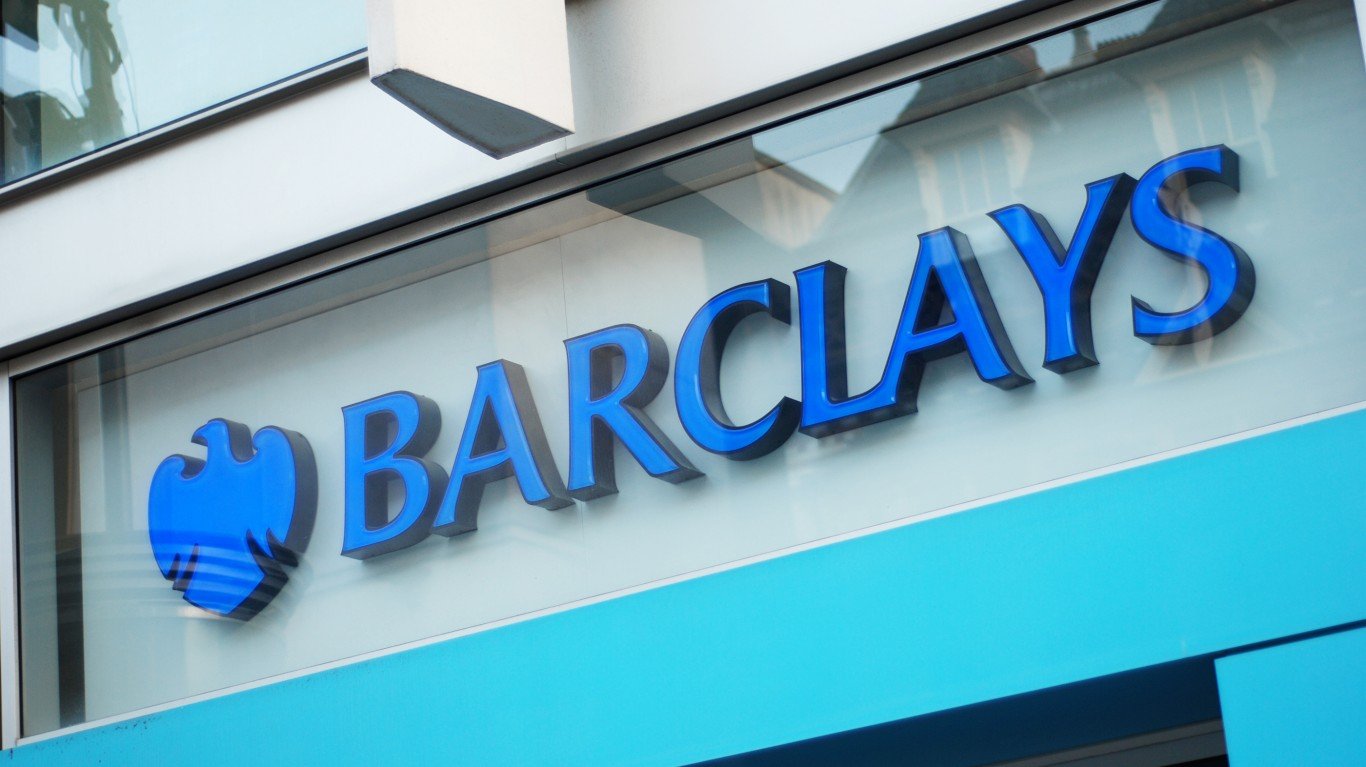

By David Callaway, Callaway Climate Insights
Largest European energy financier commits to being net zero by 2050 and aligning investments with Paris accord.
SAN FRANCISCO (Callaway Climate Insights) — Barclays announced this week it intends to become a net zero bank by 2050 and committed to “align its entire financing portfolio to the goals of the Paris Agreement,” a move that could put pressure on U.S. banks to begin following suit.
The action cones amid ongoing shareholder activism efforts by Share Action and As You Sow against Barclays (BCS), which is Europe’s largest financier of fossil fuels and the sixth largest worldwide.
“Our new ambition to be net zero, and our commitment to aligning our financing portfolio across all sectors to the goals of the Paris Agreement, will mean we can play much more of a leading role in meeting the climate challenge and in financing energy transition,” Barclays Chairman Nigel Higgins said in a statement.
“This announcement from a European bank continues to highlight the gap of inaction by U.S. banks.”
In addition to restricting its fossil fuel funding, Barclays is targeting at least 100 billion pounds of green financing by 2030 with much of that in support of new energy efficient housing and buildings. In addition, the bank will pursue investing 175 million pounds over the next five years in environmental innovation.
The Paris Agreement, reached in 2015, seeks to limit global temperature gains to less than 2 degrees Celsius in an effort to curb the worst effects of climate change around the world. U.S. President Donald Trump pulled the U.S. out of the agreement in June, 2017, saying it would undermine the U.S. economy.
“We are pleased to see Barclays show leadership at this particularly critical time of economic uncertainty,” said Danielle Fugere, president of As You Sow, in a statement. “This announcement from a European bank continues to highlight the gap of inaction by U.S. banks,” Fugere added.
In particular, shareholder groups have been targeting JPMorgan Chase (JPM), the largest global financier of fossil fuel companies, averaging $65 billion annually, according to CERES, a sustainability nonprofit organization. In addition, former ExxonMobil (XOM) CEO Lee Raymond sits on its board, potentially holding outsized influence while JPMorgan CEO Jamie Dimon continues to recover from heart surgery.
Climate activists have increasingly targeted banks with measures to curb financing of fossil fuels. The trend follows repeated actions by the Securities and Exchange Commission to “omit” or remove shareholder initiatives aimed at getting oil companies to comply with the Paris Accord, Fugere said in an interview.
The crash in oil prices thanks to the Saudi-initiated price war with Russia, coupled with the economic devastation from the coronavirus are rapidly changing the outlook for fossil fuels in general. The two phenomena may actually speed up adoption of alternative energy sources, in the view of some analysts as users seek reliable and predictable prices.
Goldman Sachs analysts said this week that once oil demand does turn around “this will ultimately create an inflationary oil supply shock of historic proportions because so much oil production will be forced to be shut in,” Reuters reported.
Free Callaway Climate Insights Newsletter
Sponsored: Attention Savvy Investors: Speak to 3 Financial Experts – FREE
Ever wanted an extra set of eyes on an investment you’re considering? Now you can speak with up to 3 financial experts in your area for FREE. By simply
clicking here you can begin to match with financial professionals who can help guide you through the financial decisions you’re making. And the best part? The first conversation with them is free.
Click here to match with up to 3 financial pros who would be excited to help you make financial decisions.
Thank you for reading! Have some feedback for us?
Contact the 24/7 Wall St. editorial team.



